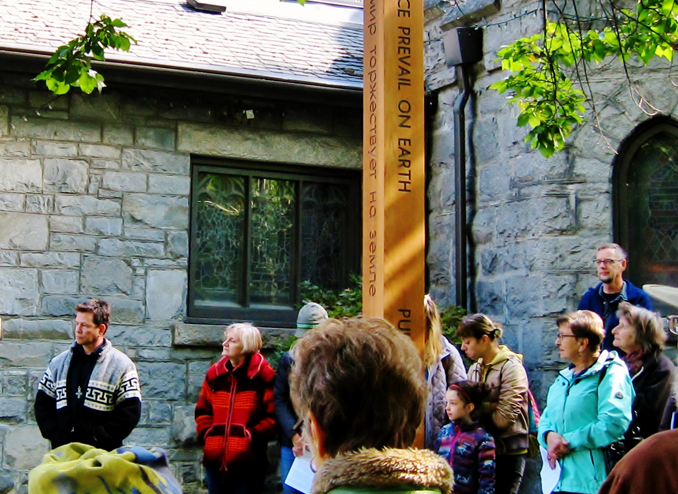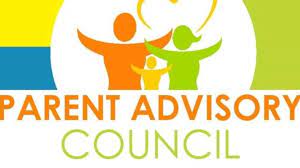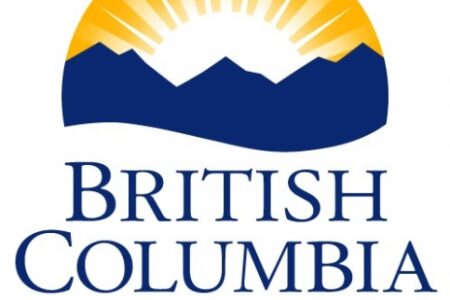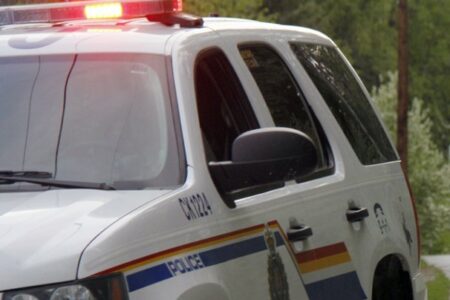Exploring Peace, Reconciliation with First Nations
The Nelson Interfaith Climate Action Collaborative will be offering a free event for the community to explore issues of Peace and Reconciliation with First Nations people on Saturday, September 22, from 1-4 p.m. at St. Saviour’s Pro-Cathedral.
The event will begin with a gathering around the Peace Pole on the lawn at St. Saviour’s, corner of Ward and Silica Streets, at 1 p.m. We will move indoors to learn about the Sinixt, one of the First Nations people from this area who were declared extinct by our federal government in 1956. We have invited members of the Sinixt nation from Washington State to join us so we can engage in listening and dialogue. Refreshments will be served and we will conclude with a closing ceremony around the Peace Pole.
Local people are invited to prepare for the conversation by reading two books that explore relationships between First Nations and settlers. Eileen Delehanty Pearkes’ book The Geography of Memory: Recovering Stories of a Landscape’s First People is a personal account of the geography and environment of the West Kootenay area and the Sinixt First Nation. As a Salish-speaking people, the Sinixt have continued to hold their knowledge through stories and the lands of the area. The second book Buffalo Shout, Salmon Cry: Conversations on Creation, Land Justice and Life Together (edited by Steve Heinrichs, 2013, Herald Press, Waterloo, ON) is a compilation of thirty writers from both indigenous and settler perspectives. Both books are available through the Nelson Public Library. Eileen’s book is also available at Touchstones Gift Shop and at the Yasodhara Ashram Bookstore. Reading the books is not a requirement for participation in the conversation, but is recommended.
The Rev. Jeff Donnelly of St. Saviour’s Anglican Pro-Cathedral speaks about the importance of peace and reconciliation at this time: “If we are sincere in our desire for peace, reconciliation and healing, we must take responsibility for the tremendous damage our political, economic and social systems have inflicted and continue to inflict on the earth and the original people of this land. We have much to learn from the wisdom of the indigenous peoples who lived here for thousands of years in harmony with and reverence for the earth. This is an opportunity to begin listening and learning with humility and respect, and to begin taking real steps toward a better relationship.”
The interfaith collaborative was brought together in the fall of 2015 by the West Kootenay EcoSociety. The work with our interfaith partners has proven to be very rich and inspiring. As we learn of our common values, we are expanding from a focus on climate action to related concerns of peace and justice.


























